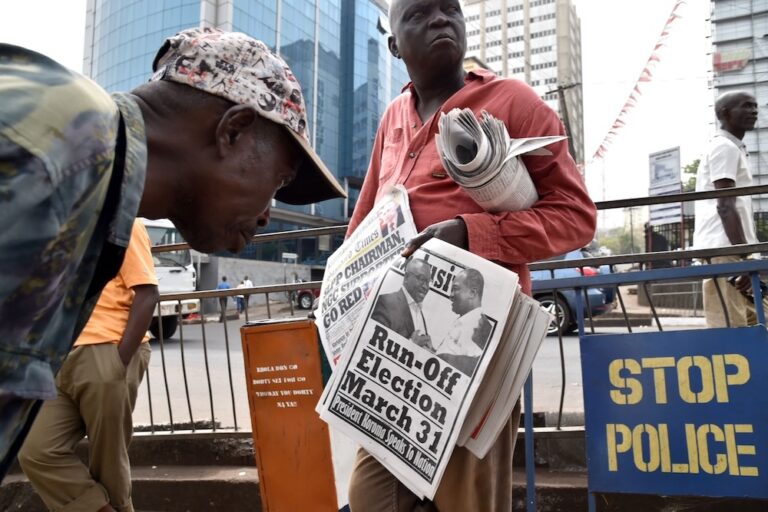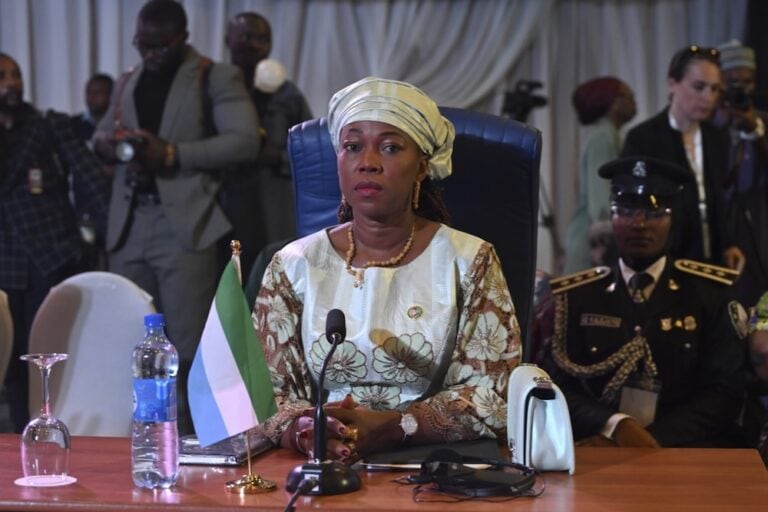Radio Wanjei has been off air since 19 March 2012, when Sadiq Sallah stormed the station and seized their broadcasting equipment for allegedly breaching a contract with the Council.
(MFWA/IFEX) – 27 March 2012 – Radio Wanjei, a community radio station in Pujehun, a town in southern Sierra Leone, has been off air for the past eight days after the Chairman of Pujehun District Council, Sadiq Sallah, on March 19, 2012 reportedly stormed the station and seized their broadcasting equipment for allegedly breaching a contract with the Council.
The Media Foundation for West Africa’s (MFWA) correspondent reported that the station had reached an agreement with the Council and the two major political parties in the country earlier in the day to begin a one-week programme from the evening of March 19, from 20:30 to 21:30 GMT of the same day. The programme was intended to raise awareness among the Pujehun community about the ongoing voter registration exercise for a fee of 100,000 Leones (approx. US$25).
Melvin Rogers, the station’s manager, told the correspondent that he notified his colleagues about this arrangement only for him to be informed that Sallah had gone to the studio and asked his staff members to leave the studio for the programme to start.
“The announcer pleaded with him (Sallah) to give them few minutes so that they can complete the announcement (that they were making), but he refused and instead took away the two microphones. He also dragged the announcer from the studio, and uttered abusive language at them. He destroyed the public notices and news scripts (that they were reading),” Rogers told the correspondent.
“We have made a report to the Sierra Leone Association of Journalists (SLAJ), Independent Media Commission (IMC) and Independent Radio Network (IRN) and we are waiting for their responses,” Roger added.
In an interview with the correspondent, Sallah justified his action by saying it was in response to the rude and unprofessional behaviour shown towards him by the station staff.
“When the time came for the programme to start, the station manager was not around and his staff said they already had a programme with the Anti-Corruption Commission, that was broadcasting, and that we must wait for it to end before we could gain access to the studio,’ he explained.
“When they finished the Anti-Corruption programme, they switched the station off, and left us there, saying we have to do the programme all alone.” The correspondent said the council chairman then took away the microphones, for the station to see the serious nature of their behaviour.


